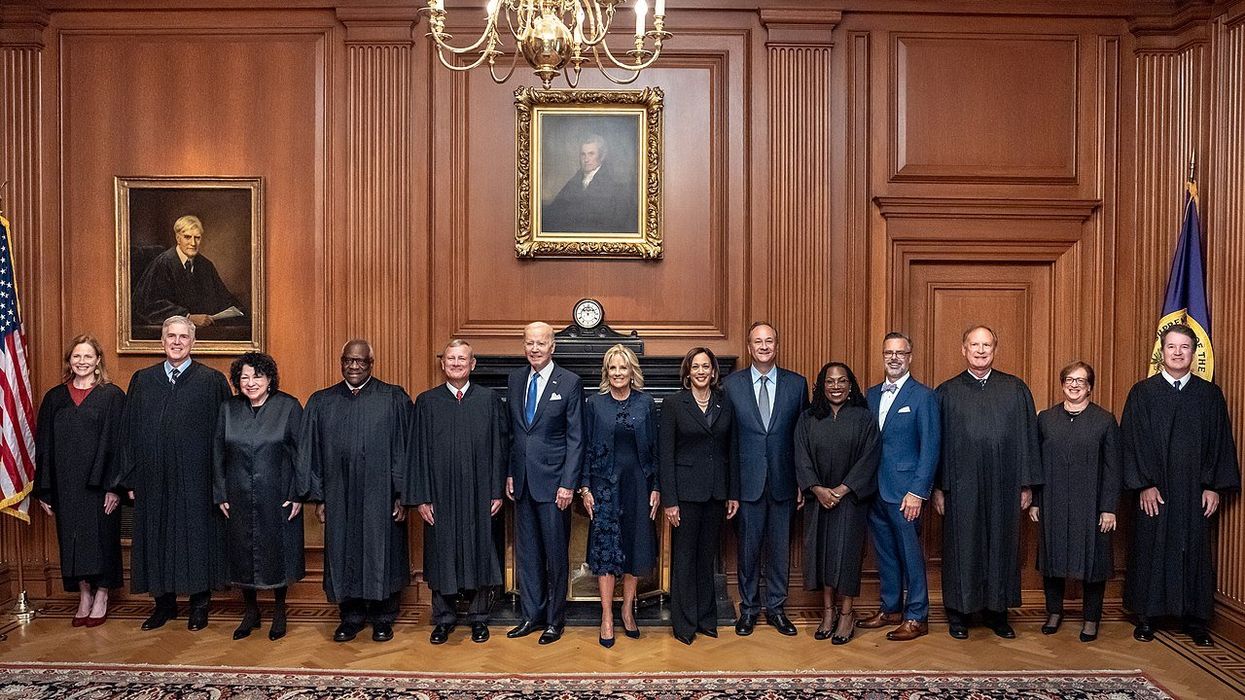Ten or 15 years ago, no one was using the term "major questions doctrine" in connection with the U.S. Supreme Court. The right-wing legal concept, which has been promoted by the Federalist Society and is now being embraced by the Roberts Court's Republican supermajority, argues, in essence, that if a presidential administration or a government agency wants to decide something of national importance, the action must have clear congressional authorization.
The New York Times' Adam Liptak examines the rise of the "major questions doctrine" in an article published on March 6, explaining why it is getting in the way of President Joe Biden's agenda.
"It has been only eight months since the Supreme Court first invoked the 'major questions doctrine' by name in a majority opinion, using it to limit the Environmental Protection Agency's power to address climate change," Liptak explains. "Last week, the Court seemed poised to use it again, to kill the Biden Administration's plan to cancel more than $400 billion in student loans."
READ MORE: 'This defines the Roberts Court': Chief justice's wife earns millions placing lawyers at firms that argue cases
Liptak goes on to discuss a 54-page study that was conducted by William & Mary Law School and published by the Social Science Research Network (SSRN) on March 2. William & Mary law professor Allison Orr Larsen, in the report, notes that the phrase "major questions" was "used just once by any federal judge before 2017, and in only five federal decisions — at any level of court — before 2020." Larsen also pointed out that the term "major questions" was heard at a Federalist Society gathering in 2016.
Liptak observes, "The turning point came in 2017, when Justice Brett M. Kavanaugh, then a judge on the U.S. Court of Appeals for the District of Columbia Circuit, used the term in a dissent…. Scholars have raised objections to the major questions approach, saying it had changed the rules in the middle of the game and had, in any event, placed unrealistic burdens on Congress."
According to Larsen, calling a legal idea a "doctrine" can increase its prominence — and that includes the major questions doctrine.
Larsen told the New York Times, "You study it for the bar exam. It gets its own section on the syllabus."
READ MORE: How the Supreme Court’s EPA ruling undermines the Biden agenda
Read The New York Times’ full report at this link (subscription required).


